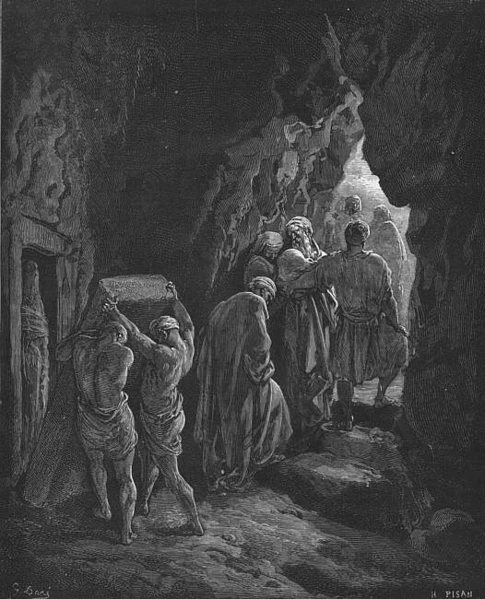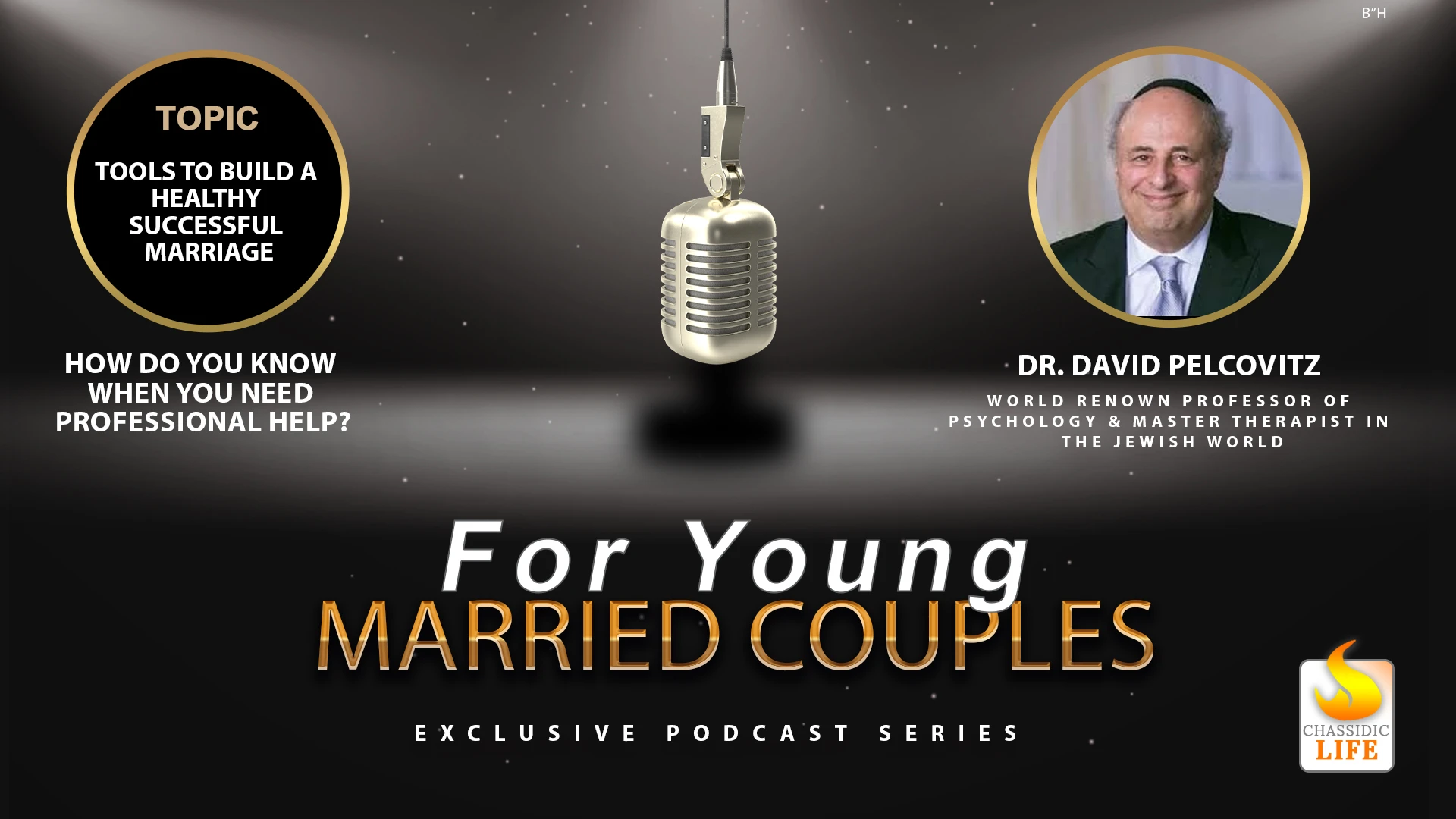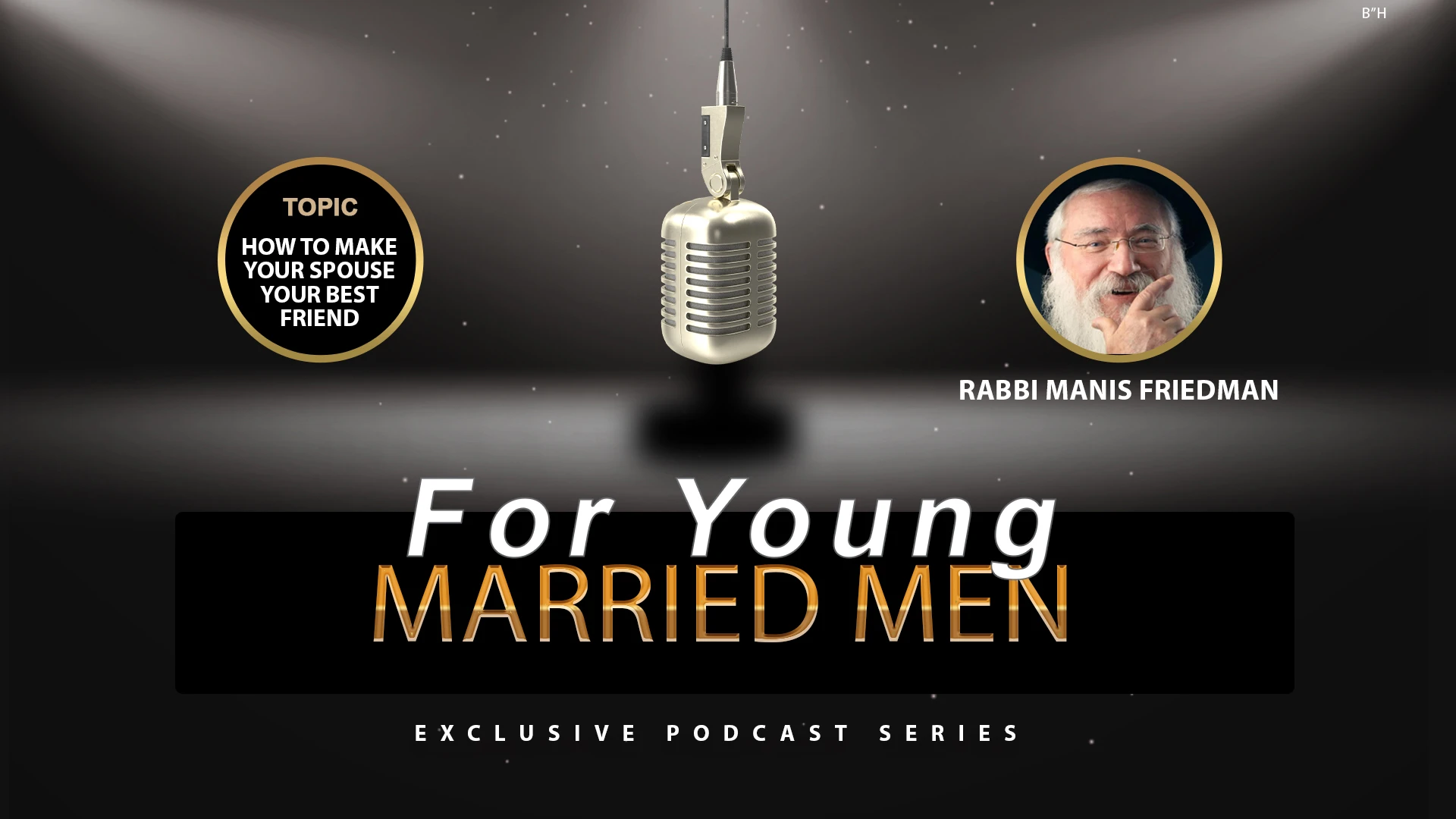The Dignity of Sacrifice
To Go Beyond the Self
- March 15, 2010
- |
- 29 Adar 5770
Rabbi YY Jacobson
1888 צפיות

The Dignity of Sacrifice
To Go Beyond the Self
Rabbi YY Jacobson
- March 15, 2010
Self-Centeredness
A very successful businessman had a meeting with his new son-in-law. "I love my daughter dearly, and now I welcome you into the family," said the man. "To show you how much we care for you, I'm making you a 50-50 partner in my business. All you have to do is go to the factory every day and manage the operations."The son-in-law interrupted, "I hate factories. I can't stand the noise."
"I see," replied the father-in-law. "Well, then you'll work in the office and take charge of those responsibilities."
"I hate office work," said the son-on-law. "I can't stand being stuck behind a desk all day."
"Wait a minute," said the father-in-law. "I just made you half-owner of a moneymaking organization, but you don't like factories and won't work in an office. What am I going to do with you?"
"Easy," said the young man. "Buy me out."
"From Among You"
In the Jewish tradition, we read each week one section from the 53 sections of the Five Books of Moses, the Hebrew Bible. This week’s Torah portion titled Vayikra legislates the laws of sacrifices which constituted an essential part of the service in the Tabernacle and subsequently in the Holy Temple in Jerusalem. It’s been almost 2000 years since the Temple was destroyed and the sacrificial system came to an end; yettheir message remains timeless and relevant.
And as is often the case in biblical study, an apparent grammatical flaw captures the psychological and existential dimensions of the issue being discussed.
“Speak to the children of Israel,” G-d tells Moses in the beginning of Vayikra, “And tell them: ‘A man who will sacrifice from among you a sacrifice to G-d; from a cow, from a bull, and from sheep shall you offer your offering (Leviticus 1:2).’”
The construction of the sentence seems incorrect. It should have said, “A man from among you who will sacrifice a sacrifice to G-d.” Not: “A man who will sacrifice from among you a sacrifice to G-d.”
Rabbi Schnuer Zalman of Liadi (1745-1812), the first Rebbe of Chabad and one of the great giants of Jewish scholarship and spirituality, offered the following moving interpretation. What the Torah is attempting to teach us via this grammatically “flawed” sentence is that the primary sacrifice G-d cherished was not the one that came of animals or grain, but rather the one stemming from the person himself: “From among you.” We must sacrifice something of ourselves to truth. The verse, then, must be understood thus: “A man who will sacrifice,” when an individual seeks to make a sacrifice, “from among you a sacrifice to G-d,” he or she must remember that the primary sacrifice must be brought from their very selves. They must offer a piece of their heart, of their soul, to G-d.A Forgotten Art
Sacrifice — the courage for one to give up something truly valuable for an ideal or a person outside of oneself — has become in our day an “endangered species.” In the minds of many it is a dirty word, conjuring up images of repression, dogma and abuse. Sacrifice is often seen as the arch enemy of the virtues that have become emblematic of our times—self expression, self assertion and emotional independence. Sacrifice, we are often told, is a crutch for insecure and co-dependent victims who eclipse their emotional dysfunction by employing the heroic myth of sacrifice.
It is obviously crucial to challenge forms of sacrifice that erode rather than affirm the quality of one’s life. Sacrifice that is feeding into abuse and tyranny is not a virtue. A beaten spouse or a crushed employee should not tolerate the immoral behavior of their spouse or employer in the name of sacrifice. Yet is it not possible that in our hypersensitivity toward the pursuit of individual liberty and the importance of self affirmation, we have deprived ourselves and our children of the vital awareness that to live means to sacrifice something of ourselves for truth, for G-d, for another human being, for your marriage, for your nation, for your values, for making the world a good place?
Nothing in the contemporary secular conversation calls on us to sacrifice anything truly valuable for someone or anything else. We have been taught to be nice and cordial, tolerant and respectful, to give five dollars to a homeless man in the street and to be sensitive to other people's feelings; but not to make real sacrifices that challenge our pleasures, force us out of our comfort zones and require profound and unwavering commitments. Yet when you do not need to fight for something, for anything, how do you learn who you really are? When you do not need to give up anything of yourself, how you do acquire the depth, dignity and maturity that comes along with sacrifice?
When you look around college campuses, educational institutions and even many yeshivos today, you wonder who is reaching out to the idealistic cords inherent in the souls of the youth? Who is giving them something they can fight for? Who is eliciting their inner depths, rather than their most superficial qualities?
When we live a life that lacks any sacrifice, our humaneness is diminished. We become more superficial, more timid, and more external. The entire book of Leviticus, dealing with sacrifices, is Judaism's way of stating that to live means to live for something.
An Altar In Tears
No area of society has been so profoundly affected by this void as the family unit. While in the not-so-distant past the family bond was considered something worthy to sacrifice for, today it is easily discarded when in conflict with one's personal comforts. Couples do not feel that the marital union is so great an ideal and so sacred an institution that they ought to make real sacrifices for it to work and blossom. If the love does not come easy, it is not worth the effort.
1700 years ago, the ninety-page tractate of Talmud legislating the Jewish laws for divorce, was transcribed. The sages of antiquity chose to culminate the book with these words:
“Whenever anyone divorces his first wife, even the Temple Altar sheds tears. As the Bible states, ‘You cause the altar of G-d to be covered with tears, with weeping and with sighing; so that G-d no longer turns to the offerings to retrieve it with good will from your hands. And you might ask: Why?—Because G-d has borne witness between you and the wife of your youth, that you have betrayed her, though she is your companion and the wife of your covenant.”
Why does a divorce arouse tears in the Temple Altar? The Holy Temple in Jerusalem had many pieces of furniture and vessels, like the candelabra, the table of bread, and of course the Holy Ark on top of which were carved the faces of a boy and girl gazing at each other, symbolizing the relationship between G-d and man. Why would they not shed a tear upon witnessing a divorce? Why was this unique to the Altar?
The explanation might be this:
The Altar was the place in the Temple where all the daily sacrifices of grain, wine and animals were offered. The Altar represented the profound but often forgotten axiom that a relationship with G-d demanded sacrifice and the giving of oneself and ones wealth. For centuries, the Altar has stood as a silent witness observing the depth and dignity characterizing a life of commitment and sacrifice. Day after day, the Altar internalized the truth that the path to self-realization leads through self-sacrifice.
When the Altar observes the consequences of a marriage in which the man and the woman did not muster the courage to make sacrifices for each other, it weeps for the greatest of opportunities forever lost. Who more than the Altar appreciates the truth that to find your own soul you must embrace another soul?There are, of course, exceptions. Sometimes divorce is a tragic necessity. When abuse and dysfunction pervade a marriage, and no remedy can be found, the right answer might be divorce. But in today’s age, many divorces occur not because of an impossible situation, but rather because of our unwillingness to transcend our egos, challenge our fears and transcend our selfish natures. For this, the Altar weeps.
This simple truth so well known to the Altar has been forgotten by many. We are scared of making sacrifices, lest they deprive us of our personal happiness. Our self-esteem is so fragile that we desperately feel the need to protect it against any outside or foreign intrusion, lest it fade away into oblivion. But happiness is an altar. The more you give, the more you receive. The soul is most at peace with itself when it shares itself with another soul. When we give up on all forms of sacrifice, we deprive ourselves from reaching our deepest potentials.
This week’s portion invites us to ask this question: When was the last time I made a real sacrifice?- תגובה
סיכום השיעור:
Self-Centeredness
A very successful businessman had a meeting with his new son-in-law. "I love my daughter dearly, and now I welcome you into the family," said the man. "To show you how much we care for you, I'm making you a 50-50 partner in my business. All you have to do is go to the factory every day and manage the operations."
The son-in-law interrupted, "I hate factories. I can't stand the noise."
"I see," replied the father-in-law. "Well, then you'll work in the office and take charge of those responsibilities."
"I hate office work," said the son-on-law. "I can't stand being stuck behind a desk all day."
"Wait a minute," said the father-in-law. "I just made you half-owner of a moneymaking organization, but you don't like factories and won't work in an office. What am I going to do with you?"
"Easy," said the young man. "Buy me out."
"From Among You"
In the Jewish tradition, we read each week one section from the 53 sections of the Five Books of Moses, the Hebrew Bible. This week’s Torah portion titled Vayikra legislates the laws of sacrifices which constituted an essential part of the service in the Tabernacle and subsequently in the Holy Temple in Jerusalem. It’s been almost 2000 years since the Temple was destroyed and the sacrificial system came to an end; yettheir message remains timeless and relevant.
And as is often the case in biblical study, an apparent grammatical flaw captures the psychological and existential dimensions of the issue being discussed.
“Speak to the children of Israel,” G-d tells Moses in the beginning of Vayikra, “And tell them: ‘A man who will sacrifice from among you a sacrifice to G-d; from a cow, from a bull, and from sheep shall you offer your offering (Leviticus 1:2).’”
The construction of the sentence seems incorrect. It should have said, “A man from among you who will sacrifice a sacrifice to G-d.” Not: “A man who will sacrifice from among you a sacrifice to G-d.”
Rabbi Schnuer Zalman of Liadi (1745-1812), the first Rebbe of Chabad and one of the great giants of Jewish scholarship and spirituality, offered the following moving interpretation. What the Torah is attempting to teach us via this grammatically “flawed” sentence is that the primary sacrifice G-d cherished was not the one that came of animals or grain, but rather the one stemming from the person himself: “From among you.” We must sacrifice something of ourselves to truth. The verse, then, must be understood thus: “A man who will sacrifice,” when an individual seeks to make a sacrifice, “from among you a sacrifice to G-d,” he or she must remember that the primary sacrifice must be brought from their very selves. They must offer a piece of their heart, of their soul, to G-d.
A Forgotten Art
Sacrifice — the courage for one to give up something truly valuable for an ideal or a person outside of oneself — has become in our day an “endangered species.” In the minds of many it is a dirty word, conjuring up images of repression, dogma and abuse. Sacrifice is often seen as the arch enemy of the virtues that have become emblematic of our times—self expression, self assertion and emotional independence. Sacrifice, we are often told, is a crutch for insecure and co-dependent victims who eclipse their emotional dysfunction by employing the heroic myth of sacrifice.
It is obviously crucial to challenge forms of sacrifice that erode rather than affirm the quality of one’s life. Sacrifice that is feeding into abuse and tyranny is not a virtue. A beaten spouse or a crushed employee should not tolerate the immoral behavior of their spouse or employer in the name of sacrifice. Yet is it not possible that in our hypersensitivity toward the pursuit of individual liberty and the importance of self affirmation, we have deprived ourselves and our children of the vital awareness that to live means to sacrifice something of ourselves for truth, for G-d, for another human being, for your marriage, for your nation, for your values, for making the world a good place?
Nothing in the contemporary secular conversation calls on us to sacrifice anything truly valuable for someone or anything else. We have been taught to be nice and cordial, tolerant and respectful, to give five dollars to a homeless man in the street and to be sensitive to other people's feelings; but not to make real sacrifices that challenge our pleasures, force us out of our comfort zones and require profound and unwavering commitments. Yet when you do not need to fight for something, for anything, how do you learn who you really are? When you do not need to give up anything of yourself, how you do acquire the depth, dignity and maturity that comes along with sacrifice?
When you look around college campuses, educational institutions and even many yeshivos today, you wonder who is reaching out to the idealistic cords inherent in the souls of the youth? Who is giving them something they can fight for? Who is eliciting their inner depths, rather than their most superficial qualities?
When we live a life that lacks any sacrifice, our humaneness is diminished. We become more superficial, more timid, and more external. The entire book of Leviticus, dealing with sacrifices, is Judaism's way of stating that to live means to live for something.
An Altar In Tears
No area of society has been so profoundly affected by this void as the family unit. While in the not-so-distant past the family bond was considered something worthy to sacrifice for, today it is easily discarded when in conflict with one's personal comforts. Couples do not feel that the marital union is so great an ideal and so sacred an institution that they ought to make real sacrifices for it to work and blossom. If the love does not come easy, it is not worth the effort.
1700 years ago, the ninety-page tractate of Talmud legislating the Jewish laws for divorce, was transcribed. The sages of antiquity chose to culminate the book with these words:
“Whenever anyone divorces his first wife, even the Temple Altar sheds tears. As the Bible states, ‘You cause the altar of G-d to be covered with tears, with weeping and with sighing; so that G-d no longer turns to the offerings to retrieve it with good will from your hands. And you might ask: Why?—Because G-d has borne witness between you and the wife of your youth, that you have betrayed her, though she is your companion and the wife of your covenant.”
Why does a divorce arouse tears in the Temple Altar? The Holy Temple in Jerusalem had many pieces of furniture and vessels, like the candelabra, the table of bread, and of course the Holy Ark on top of which were carved the faces of a boy and girl gazing at each other, symbolizing the relationship between G-d and man. Why would they not shed a tear upon witnessing a divorce? Why was this unique to the Altar?
The explanation might be this:
The Altar was the place in the Temple where all the daily sacrifices of grain, wine and animals were offered. The Altar represented the profound but often forgotten axiom that a relationship with G-d demanded sacrifice and the giving of oneself and ones wealth. For centuries, the Altar has stood as a silent witness observing the depth and dignity characterizing a life of commitment and sacrifice. Day after day, the Altar internalized the truth that the path to self-realization leads through self-sacrifice.
When the Altar observes the consequences of a marriage in which the man and the woman did not muster the courage to make sacrifices for each other, it weeps for the greatest of opportunities forever lost. Who more than the Altar appreciates the truth that to find your own soul you must embrace another soul?
There are, of course, exceptions. Sometimes divorce is a tragic necessity. When abuse and dysfunction pervade a marriage, and no remedy can be found, the right answer might be divorce. But in today’s age, many divorces occur not because of an impossible situation, but rather because of our unwillingness to transcend our egos, challenge our fears and transcend our selfish natures. For this, the Altar weeps.
This simple truth so well known to the Altar has been forgotten by many. We are scared of making sacrifices, lest they deprive us of our personal happiness. Our self-esteem is so fragile that we desperately feel the need to protect it against any outside or foreign intrusion, lest it fade away into oblivion. But happiness is an altar. The more you give, the more you receive. The soul is most at peace with itself when it shares itself with another soul. When we give up on all forms of sacrifice, we deprive ourselves from reaching our deepest potentials.
This week’s portion invites us to ask this question: When was the last time I made a real sacrifice?
Rabbi YY Jacobson
- March 15, 2010
- |
- 29 Adar 5770
- |
- 1888 צפיות

The Dignity of Sacrifice
To Go Beyond the Self
Rabbi YY Jacobson
- March 15, 2010
Self-Centeredness
A very successful businessman had a meeting with his new son-in-law. "I love my daughter dearly, and now I welcome you into the family," said the man. "To show you how much we care for you, I'm making you a 50-50 partner in my business. All you have to do is go to the factory every day and manage the operations."The son-in-law interrupted, "I hate factories. I can't stand the noise."
"I see," replied the father-in-law. "Well, then you'll work in the office and take charge of those responsibilities."
"I hate office work," said the son-on-law. "I can't stand being stuck behind a desk all day."
"Wait a minute," said the father-in-law. "I just made you half-owner of a moneymaking organization, but you don't like factories and won't work in an office. What am I going to do with you?"
"Easy," said the young man. "Buy me out."
"From Among You"
In the Jewish tradition, we read each week one section from the 53 sections of the Five Books of Moses, the Hebrew Bible. This week’s Torah portion titled Vayikra legislates the laws of sacrifices which constituted an essential part of the service in the Tabernacle and subsequently in the Holy Temple in Jerusalem. It’s been almost 2000 years since the Temple was destroyed and the sacrificial system came to an end; yettheir message remains timeless and relevant.
And as is often the case in biblical study, an apparent grammatical flaw captures the psychological and existential dimensions of the issue being discussed.
“Speak to the children of Israel,” G-d tells Moses in the beginning of Vayikra, “And tell them: ‘A man who will sacrifice from among you a sacrifice to G-d; from a cow, from a bull, and from sheep shall you offer your offering (Leviticus 1:2).’”
The construction of the sentence seems incorrect. It should have said, “A man from among you who will sacrifice a sacrifice to G-d.” Not: “A man who will sacrifice from among you a sacrifice to G-d.”
Rabbi Schnuer Zalman of Liadi (1745-1812), the first Rebbe of Chabad and one of the great giants of Jewish scholarship and spirituality, offered the following moving interpretation. What the Torah is attempting to teach us via this grammatically “flawed” sentence is that the primary sacrifice G-d cherished was not the one that came of animals or grain, but rather the one stemming from the person himself: “From among you.” We must sacrifice something of ourselves to truth. The verse, then, must be understood thus: “A man who will sacrifice,” when an individual seeks to make a sacrifice, “from among you a sacrifice to G-d,” he or she must remember that the primary sacrifice must be brought from their very selves. They must offer a piece of their heart, of their soul, to G-d.A Forgotten Art
Sacrifice — the courage for one to give up something truly valuable for an ideal or a person outside of oneself — has become in our day an “endangered species.” In the minds of many it is a dirty word, conjuring up images of repression, dogma and abuse. Sacrifice is often seen as the arch enemy of the virtues that have become emblematic of our times—self expression, self assertion and emotional independence. Sacrifice, we are often told, is a crutch for insecure and co-dependent victims who eclipse their emotional dysfunction by employing the heroic myth of sacrifice.
It is obviously crucial to challenge forms of sacrifice that erode rather than affirm the quality of one’s life. Sacrifice that is feeding into abuse and tyranny is not a virtue. A beaten spouse or a crushed employee should not tolerate the immoral behavior of their spouse or employer in the name of sacrifice. Yet is it not possible that in our hypersensitivity toward the pursuit of individual liberty and the importance of self affirmation, we have deprived ourselves and our children of the vital awareness that to live means to sacrifice something of ourselves for truth, for G-d, for another human being, for your marriage, for your nation, for your values, for making the world a good place?
Nothing in the contemporary secular conversation calls on us to sacrifice anything truly valuable for someone or anything else. We have been taught to be nice and cordial, tolerant and respectful, to give five dollars to a homeless man in the street and to be sensitive to other people's feelings; but not to make real sacrifices that challenge our pleasures, force us out of our comfort zones and require profound and unwavering commitments. Yet when you do not need to fight for something, for anything, how do you learn who you really are? When you do not need to give up anything of yourself, how you do acquire the depth, dignity and maturity that comes along with sacrifice?
When you look around college campuses, educational institutions and even many yeshivos today, you wonder who is reaching out to the idealistic cords inherent in the souls of the youth? Who is giving them something they can fight for? Who is eliciting their inner depths, rather than their most superficial qualities?
When we live a life that lacks any sacrifice, our humaneness is diminished. We become more superficial, more timid, and more external. The entire book of Leviticus, dealing with sacrifices, is Judaism's way of stating that to live means to live for something.
An Altar In Tears
No area of society has been so profoundly affected by this void as the family unit. While in the not-so-distant past the family bond was considered something worthy to sacrifice for, today it is easily discarded when in conflict with one's personal comforts. Couples do not feel that the marital union is so great an ideal and so sacred an institution that they ought to make real sacrifices for it to work and blossom. If the love does not come easy, it is not worth the effort.
1700 years ago, the ninety-page tractate of Talmud legislating the Jewish laws for divorce, was transcribed. The sages of antiquity chose to culminate the book with these words:
“Whenever anyone divorces his first wife, even the Temple Altar sheds tears. As the Bible states, ‘You cause the altar of G-d to be covered with tears, with weeping and with sighing; so that G-d no longer turns to the offerings to retrieve it with good will from your hands. And you might ask: Why?—Because G-d has borne witness between you and the wife of your youth, that you have betrayed her, though she is your companion and the wife of your covenant.”
Why does a divorce arouse tears in the Temple Altar? The Holy Temple in Jerusalem had many pieces of furniture and vessels, like the candelabra, the table of bread, and of course the Holy Ark on top of which were carved the faces of a boy and girl gazing at each other, symbolizing the relationship between G-d and man. Why would they not shed a tear upon witnessing a divorce? Why was this unique to the Altar?
The explanation might be this:
The Altar was the place in the Temple where all the daily sacrifices of grain, wine and animals were offered. The Altar represented the profound but often forgotten axiom that a relationship with G-d demanded sacrifice and the giving of oneself and ones wealth. For centuries, the Altar has stood as a silent witness observing the depth and dignity characterizing a life of commitment and sacrifice. Day after day, the Altar internalized the truth that the path to self-realization leads through self-sacrifice.
When the Altar observes the consequences of a marriage in which the man and the woman did not muster the courage to make sacrifices for each other, it weeps for the greatest of opportunities forever lost. Who more than the Altar appreciates the truth that to find your own soul you must embrace another soul?There are, of course, exceptions. Sometimes divorce is a tragic necessity. When abuse and dysfunction pervade a marriage, and no remedy can be found, the right answer might be divorce. But in today’s age, many divorces occur not because of an impossible situation, but rather because of our unwillingness to transcend our egos, challenge our fears and transcend our selfish natures. For this, the Altar weeps.
This simple truth so well known to the Altar has been forgotten by many. We are scared of making sacrifices, lest they deprive us of our personal happiness. Our self-esteem is so fragile that we desperately feel the need to protect it against any outside or foreign intrusion, lest it fade away into oblivion. But happiness is an altar. The more you give, the more you receive. The soul is most at peace with itself when it shares itself with another soul. When we give up on all forms of sacrifice, we deprive ourselves from reaching our deepest potentials.
This week’s portion invites us to ask this question: When was the last time I made a real sacrifice?- תגובה
סיכום השיעור:
שיעורים קשורים
אנא עזרו לנו להמשיך בפעילותנו
הרשמה לקבלת תוכן (באנגלית) עדכני מאת הרב יוסף יצחק ג'ייקובסון
צרפו חברים ומשפחה לקבוצת הווסטאפ שלנו
צרפו חברים ומשפחה לקבוצת הווסטאפ שלנו















אנא השאירו את תגובתכם למטה!
Kate J Murchison -10 חודשים לִפנֵי
CONSULT CRYPTO RECOVERY RUSTIK CYBER HACK SERVICE
The Rustik Cyber Hack Service team is a renowned group of experienced cryptocurrency analysts and advisors specializing in stolen crypto recovery. In the rapidly evolving world of cryptocurrencies, the risk of theft and hacking poses a significant challenge to investors and traders. Recognizing the need for expert assistance in recovering stolen funds, the Rustik Cyber Hack Service Team has emerged as a trusted and reliable resource for individuals and businesses alike. With their extensive knowledge, innovative strategies, and successful track record, the Rustik Cyber Hack Service Team aims to safeguard crypto investments and restore financial security for their clients. The Rustik Cyber Hack Service Team is a group of experienced cryptocurrency analysts and advisors specializing in stolen crypto recovery. We understand the complexities of the crypto industry and have a deep knowledge of its inner workings. With the growing popularity of cryptocurrencies, the need for analysis and advisory services has become paramount. The crypto market is highly volatile and can be unpredictable, making it crucial to have expert guidance in navigating this complex landscape. In the crypto space, expert analysis and advice services have many advantages. They aid in the identification of possible risks and opportunities, offer insights into market trends, and support the process of making well-informed investment decisions. Through the utilization of professionals' skills, both individuals and corporations may optimize their profits and minimize any potential losses in the cryptocurrency market. Cryptocurrency theft has become a significant concern as the value of digital assets continues to rise. Hackers and cybercriminals are constantly finding new ways to exploit vulnerabilities in blockchain technology, leading to the loss of millions of dollars worth of crypto. Stolen crypto recovery refers to the process of recovering lost or stolen cryptocurrencies. It involves investigating blockchain transactions, tracing the flow of funds, and working alongside law enforcement agencies to track down and reclaim stolen assets. The Rustik Cyber Hack Service Team specializes in this complex and challenging task, offering their expertise to those who have fallen victim to crypto theft. With the increasing incidence of cryptocurrency theft, the Rustik Cyber Hack Service Team plays a vital role in the crypto industry by providing expert analysis and advisory services in stolen crypto recovery. Their exceptional expertise, extensive experience, and innovative strategies have led to numerous successful recoveries, earning them a reputation as a trusted and reliable partner. Call Rustik Cyber Hack Service through Email: ( [email protected] ) Get more information on Web site: RUSTIKCYBERHACKSERVICE.COM and easily reach out to Rustik Cyber Hack Service through WhatsApp + 1.38.63.48.78.38 and Telegram: @rustikcyberhackservice CYBER SECURITY EXPERTS
השיבו לתגובה זו.סמן את התגובה הזו.